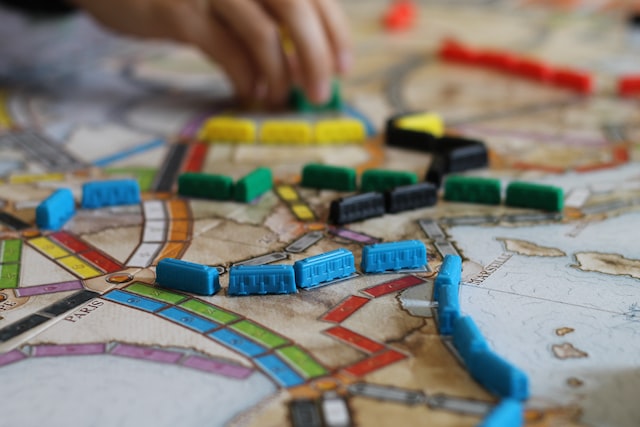ライフハックとしてではなく、英語学習にも極めて有用なのが、著名人が10分程度のプレゼンを行うTEDです。
TED Talksとは、あらゆる分野のエキスパートたちによるプレゼンテーションを無料で視聴できる動画配信サービスのことです。10年ほど前にサービスが開始されてから、政治、心理学、経済、日常生活などの幅広いコンテンツが視聴できることから人気を集めています。
RareJob English Lab
TEDは4000を超える膨大な数の動画があります。しかし慣れないうちは、動画の探し方や視聴のコツが分かりませんよね。この記事では、数多くのTEDを見てきた管理人(塩@saltandshio)が、心を揺さぶられたトークをあらすじと一緒にご紹介します。
ビジネス英会話を効率よく身につけたい方におすすめスクール
シェーン英会話
シェーンは1977年の創業以来、ネイティブ講師が英語を英語で教える「直接教授法」を採用しています。首都圏におけるスクール拠点数は、ネイティブ講師の英会話スクールでNo.1。駅から近いスクールが多いので通いやすく時間を有効に使えます。
スピークバディ パーソナルコーチング
1日1時間の短期集中トレーニングで、あなたの英語力向上をコーチが全力でサポートします。あなたの英語の世界が、劇的に変わります。
トーニャ・メノン: 素晴らしいチャンスを掴む鍵はまだ会ったことのない人にあり
私たちは似た者同士の狭い集団にとらわれがちです。どのような理由でそのようなしばりにとらわれることになり、どうすればそれを打ち破れるのでしょうか?組織心理学者のトーニャ・メノンが、自分の人間関係をどうすれば意識的に広げられるのか、それがどう新たなアイデアやチャンスに結び付くのかを考察します(約14分)。
[PR]無料体験レッスン実施中!全国208校、創業40年の老舗英会話スクール【シェーン英会話】類は友を呼ぶ
トーニャ・メノンが卒業生たちと会って驚くことのひとつが、彼らが学生の時にどのへんに座っていたのか、誰と一緒にいたのかということまで覚えていることです。それは、彼女の記憶力が高いからというわけではありません。人間は習慣の生き物なので、卒業生たちがいつもどの場所で誰と一緒にいたのかというのを自然と記憶しているためです。
せっかくMBAという優れた学校に入ったのに、これは非常にもったいないことだとトーニャ・メノンは残念がります。気の合う仲間たちと一緒にいることはストレスも低く、彼らにとってはとても居心地が良いものでしょう。しかし、同時に国際的で多様な人脈を築く機会を無駄にしてしまっているのです。世界的なビジネススクールにわざわざ通っているのに、です。
実際、私たちが普段繋がりある人たちも、気が付けば居心地の良い人を選んでいます。それ自体は悪いことではありません。しかし、新たな考えや、新しい仕事や、新しいリソースが必要になった時、そのような『小さな集団』で暮らしていると大きなツケを払わなければいけなくなります。
では、私たちはどうすればいいのでしょうか。
[PR]まずは無料カウンセリング”続けるため”の オンライン英語コーチ「スピークバディ パーソナルコーチング」私たちは、すでに新しい切符を手に入れている
新しい場所に引っ越してきたとき、新しいコミュニティに属した時、進学した時、就職や転職した時、私たちは新しい切符を手に入れています。しかし、せっかく新しい切符を手に入れたというのに、私たちはそれをあまりうまく使えません。どうして私たちは、自分の殻に閉じこもってしまうのでしょうか。それもまた、私たちが習慣の動物である証拠で、慣れ親しんだこと(習慣)から抜け出せないためです。
学校や会社に向かうとき、私たちは歩きなれた道、乗り慣れたバス、同じ階段やエレベーターを使います。同じトイレに行く人もいるでしょう。まるで電車の時刻表のようで、まったく型どおりです。非常に効率的ではありますが、問題は同じ人たちにしか出会わないということです。新しい人と出会いたいのであれば、ここから変えていかなくてはいけません。
つまり、私たちが無意識に行っていた効率的な行為を変えていくことが、自分の世界を広げるチャンスになるのです。その方法について以下に解説していこうと思います。
[PR]しちだの魔法ペンなら35日でバイリンガルに!楽天4部門1位の英会話!<七田式>切符を有効活用する方法について
手にした切符を有効活用する方法について。第1の策は、もっと不完全な人間検索エンジンを使うことです。ここで『人間検索エンジン』と呼んでいるのは、友達をふるい分けて見付ける方法ということです。
新しい人と出会いたいのであれば、人付き合いをもう少し非効率にすべきです。いつもより早く家を出て、違う交通手段を使ってみたら、まったく新たな人たちに出会うことが出来るでしょう。違う道、違う場所、違う店、そこに多くの出会いと発見があります。
私たちは無意識に他人を見てフィルターにかけています。第2の策は、そのフィルターに抵抗してみることです。普段なら話さないような人に話しかけてみる、一番気が合わなさそうな人と接触してみる。
この二つ目の実験のポイントは、会いたくない人に会い、関わりたくない人に関わるよう自分に強いることで、自分の世界を広げるのです。人間関係を本当に広げようと思ったら、自分の好みに抗う必要があることを忘れてはいけません。
好きなことしかしていなければ、いずれ行き詰まっていきます。新しい世界の扉を開くためには、自分に抵抗することも必要なのです。
[PR]検定試験合格者累計140万人!スマホ対応☆国家資格ほか資格取得ならSMART合格対策講座必要なのは少しの勇気
あなたは、自分の社会的な習慣を変えるために何をしていますか?どのような場所に出向き、予期せぬ多様性を手にしているでしょうか? 本当に考えてほしいのは、自分のフィルターと戦わなければならないということです。
そのためには、もう少し非効率にする必要があります。そうすることで人間検索エンジンが もっと曖昧なものになるためです。生き方や暮らし方にランダム性を持たせることで、世間を渡る範囲をぐっと広げることになります。
しかし、その言葉が耳に届く人と、届かない人がいることを私たちはまず理解しなくてはいけません。私たちは世の中を旅する時に、あえて二等切符を買うこともあるのです。
嫌がらせをされたとき、いじめられたとき、病気、妊娠、介護などで社会との関りが薄くなったとき……などなど。人の繋がりを最も必要とするときに、私たちは自分の人脈を心理的に縮めてしまいます。自分の殻に閉じこもって孤立してしまい、自分の味方もチャンスも見えなくなってしまうのです。
そんな、あたかも自分の目の前に大きな壁が出来たと感じたとき、私たちはどうすればいいでしょうか。
[PR]知って得する、知らないと損をする!すぐに役立つ相手に合った「伝え方」のコツ!まとめ:人生は旅のように、生き方は原子のように
閉じこもった状況から抜け出す方法は、SNSで繋がりある人のことを思い出すという方法があります。そして、家族のあいだでも仕事の仲間でも、やり取りや取引は一旦横に置いておいて、社会的絆を強めることを考えてみてください。
よく「人生とは旅である」という言葉が使われます。人生とは列車であり、人はその乗客で、仲間や知り合いは一緒に乗り合わせた人たちです。いろんな人が乗っていて、しばらく一緒になる人、別の駅で降りて行く人、新たに乗ってくる人がいます。
この言葉はとても素敵ですが、出会う人を“列車の乗客”というくくりで考えるのは受身でとても直線的です。しかも、列車はまるで特定の目的地に向かっているように感じます。そうではなく、自分を原子のように考えてはどうでしょうか。
他の原子とぶつかり合い、エネルギーをやり取りし、結合し、何か新しいものを生み出しながら、社会という宇宙を旅する存在です。そう考えると、人とのつながりがよりエキサイティングでワクワクしたものに感じませんか?
あなたの踏み出す一歩が、新たな旅路への切符になりますように。
英語全文
I started teaching MBA students 17 years ago. Sometimes I run into my students years later. And when I run into them, a funny thing happens. I don’t remember just their faces; I also remember where exactly in the classroom they were sitting.
<全文を読む>▼クリック▼
Now, the danger of this for my students is they’re at risk of leaving the university with just a few people who are exactly like them. They’re going to squander their chance for an international, diverse network. How could this happen to them? My students are open-minded. They come to business school precisely so that they can get great networks.
Now, all of us socially narrow in our lives, in our school, in work, and so I want you to think about this one. How many of you here brought a friend along for this talk? I want you to look at your friend a little bit. Are they of the same nationality as you? Are they of the same gender as you? Are they of the same race? Really look at them closely. Don’t they kind of look like you as well?
The muscle people are together, and the people with the same hairstyles and the checked shirts.
We all do this in life. We all do it in life, and in fact, there’s nothing wrong with this. It makes us comfortable to be around people who are similar. The problem is when we’re on a precipice, right? When we’re in trouble, when we need new ideas, when we need new jobs, when we need new resources — this is when we really pay a price for living in a clique.
Mark Granovetter, the sociologist, had a famous paper “The Strength of Weak Ties,” and what he did in this paper is he asked people how they got their jobs. And what he learned was that most people don’t get their jobs through their strong ties — their father, their mother, their significant other. They instead get jobs through weak ties, people who they just met. So if you think about what the problem is with your strong ties, think about your significant other, for example. The network is redundant. Everybody that they know, you know. Or I hope you know them. Right? Your weak ties — people you just met today — they are your ticket to a whole new social world.
The thing is that we have this amazing ticket to travel our social worlds, but we don’t use it very well. Sometimes we stay awfully close to home. And today, what I want to talk about is: What are those habits that keep human beings so close to home, and how can we be a little bit more intentional about traveling our social universe?
So let’s look at the first strategy. The first strategy is to use a more imperfect social search engine. What I mean by a social search engine is how you are finding and filtering your friends. And so people always tell me, “I want to get lucky through the network. I want to get a new job. I want to get a great opportunity.” And I say, “Well, that’s really hard, because your networks are so fundamentally predictable.” Map out your habitual daily footpath, and what you’ll probably discover is that you start at home, you go to your school or your workplace, you maybe go up the same staircase or elevator, you go to the bathroom — the same bathroom — and the same stall in that bathroom, you end up in the gym, then you come right back home. It’s like stops on a train schedule. It’s that predictable. It’s efficient, but the problem is, you’re seeing exactly the same people. Make your network slightly more inefficient. Go to a bathroom on a different floor. You encounter a whole new network of people.
The other side of it is how we are actually filtering. And we do this automatically. The minute we meet someone, we are looking at them, we meet them, we are initially seeing, “You’re interesting.” “You’re not interesting.” “You’re relevant.” We do this automatically. We can’t even help it. And what I want to encourage you to do instead is to fight your filters. I want you to take a look around this room, and I want you to identify the least interesting person that you see, and I want you to connect with them over the next coffee break. And I want you to go even further than that. What I want you to do is find the most irritating person you see as well and connect with them.
What you are doing with this exercise is you are forcing yourself to see what you don’t want to see, to connect with who you don’t want to connect with, to widen your social world. To truly widen, what we have to do is, we’ve got to fight our sense of choice. We’ve got to fight our choices. And my students hate this, but you know what I do? I won’t let them sit in their favorite seats. I move them around from seat to seat. I force them to work with different people so there are more accidental bumps in the network where people get a chance to connect with each other. And we studied exactly this kind of an intervention at Harvard University. At Harvard, when you look at the rooming groups, there’s freshman rooming groups, people are not choosing those roommates. They’re of all different races, all different ethnicities. Maybe people are initially uncomfortable with those roommates, but the amazing thing is, at the end of a year with those students, they’re able to overcome that initial discomfort. They’re able to find deep-level commonalities with people.
So the takeaway here is not just “take someone out to coffee.” It’s a little more subtle. It’s “go to the coffee room.” When researchers talk about social hubs, what makes a social hub so special is you can’t choose; you can’t predict who you’re going to meet in that place. And so with these social hubs, the paradox is, interestingly enough, to get randomness, it requires, actually, some planning. In one university that I worked at, there was a mail room on every single floor. What that meant is that the only people who would bump into each other are those who are actually on that floor and who are bumping into each other anyway. At another university I worked at, there was only one mail room, so all the faculty from all over that building would run into each other in that social hub. A simple change in planning, a huge difference in the traffic of people and the accidental bumps in the network.
Here’s my question for you: What are you doing that breaks you from your social habits? Where do you find yourself in places where you get injections of unpredictable diversity? And my students give me some wonderful examples. They tell me when they’re doing pickup basketball games, or my favorite example is when they go to a dog park. They tell me it’s even better than online dating when they’re there.
So the real thing that I want you to think about is we’ve got to fight our filters. We’ve got to make ourselves a little more inefficient, and by doing so, we are creating a more imprecise social search engine. And you’re creating that randomness, that luck that is going to cause you to widen your travels, through your social universe.
But in fact, there’s more to it than that. Sometimes we actually buy ourselves a second-class ticket to travel our social universe. We are not courageous when we reach out to people. Let me give you an example of that. A few years ago, I had a very eventful year. That year, I managed to lose a job, I managed to get a dream job overseas and accept it, I had a baby the next month, I got very sick, I was unable to take the dream job. And so in a few weeks, what ended up happening was, I lost my identity as a faculty member, and I got a very stressful new identity as a mother. What I also got was tons of advice from people. And the advice I despised more than any other advice was, “You’ve got to go network with everybody.” When your psychological world is breaking down, the hardest thing to do is to try and reach out and build up your social world.
And so we studied exactly this idea on a much larger scale. What we did was we looked at high and low socioeconomic status people, and we looked at them in two situations. We looked at them first in a baseline condition, when they were quite comfortable. And what we found was that our lower socioeconomic status people, when they were comfortable, were actually reaching out to more people. They thought of more people. They were also less constrained in how they were networking. They were thinking of more diverse people than the higher-status people. Then we asked them to think about maybe losing a job. We threatened them. And once they thought about that, the networks they generated completely differed. The lower socioeconomic status people reached inwards. They thought of fewer people. They thought of less-diverse people. The higher socioeconomic status people thought of more people, they thought of a broader network, they were positioning themselves to bounce back from that setback.
Let’s consider what this actually means. Imagine that you were being spontaneously unfriended by everyone in your network other than your mom, your dad and your dog.
This is essentially what we are doing at these moments when we need our networks the most. Imagine — this is what we’re doing. We’re doing it to ourselves. We are mentally compressing our networks when we are being harassed, when we are being bullied, when we are threatened about losing a job, when we feel down and weak. We are closing ourselves off, isolating ourselves, creating a blind spot where we actually don’t see our resources. We don’t see our allies, we don’t see our opportunities.
How can we overcome this? Two simple strategies. One strategy is simply to look at your list of Facebook friends and LinkedIn friends just so you remind yourself of people who are there beyond those that automatically come to mind. And in our own research,one of the things we did was, we considered Claude Steele’s research on self-affirmation: simply thinking about your own values, networking from a place of strength. What Leigh Thompson, Hoon-Seok Choi and I were able to do is, we found that people who had affirmed themselves first were able to take advice from people who would otherwise be threatening to them.
Here’s a last exercise. I want you to look in your email in-box, and I want you to look at the last time you asked somebody for a favor. And I want you to look at the language that you used. Did you say things like, “Oh, you’re a great resource,” or “I owe you one,” “I’m obligated to you.” All of this language represents a metaphor. It’s a metaphor of economics, of a balance sheet, of accounting, of transactions. And when we think about human relations in a transactional way, it is fundamentally uncomfortable to us as human beings. We must think about human relations and reaching out to people in more humane ways.
Here’s an idea as to how to do so. Look at words like “please,” “thank you,” “you’re welcome” in other languages. Look at the literal translation of these words. Each of these words is a word that helps us impose upon other people in our social networks. And so, the word “thank you,” if you look at it in Spanish, Italian, French, “gracias,” “grazie,” “merci” in French. Each of them are “grace” and “mercy.” They are godly words. There’s nothing economic or transactional about those words. The word “you’re welcome” is interesting. The great persuasion theorist Robert Cialdini says we’ve got to get our favors back. So we need to emphasize the transaction a little bit more. He says, “Let’s not say ‘You’re welcome.’ Instead say, ‘I know you’d do the same for me.'” But sometimes it may be helpful to not think in transactional ways, to eliminate the transaction, to make it a little bit more invisible. And in fact, if you look in Chinese, the word “bu ke qi” in Chinese, “You’re welcome,” means, “Don’t be formal; we’re family. We don’t need to go through those formalities.” And “kembali” in Indonesian is “Come back to me.” When you say “You’re welcome” next time, think about how you can maybe eliminate the transaction and instead strengthen that social tie. Maybe “It’s great to collaborate,” or “That’s what friends are for.”
I want you to think about how you think about this ticket that you have to travel your social universe. Here’s one metaphor. It’s a common metaphor: “Life is a journey.” Right? It’s a train ride, and you’re a passenger on the train, and there are certain people with you. Certain people get on this train, and some stay with you, some leave at different stops, new ones may enter. I love this metaphor, it’s a beautiful one. But I want you to consider a different metaphor. This one is passive, being a passenger on that train, and it’s quite linear. You’re off to some particular destination. Why not instead think of yourself as an atom, bumping up against other atoms, maybe transferring energy with them, bonding with them a little and maybe creating something new on your travels through the social universe.
Thank you so much. And I hope we bump into each other again.
<閉じる>
\ ほかにも気になるトークが満載! /







